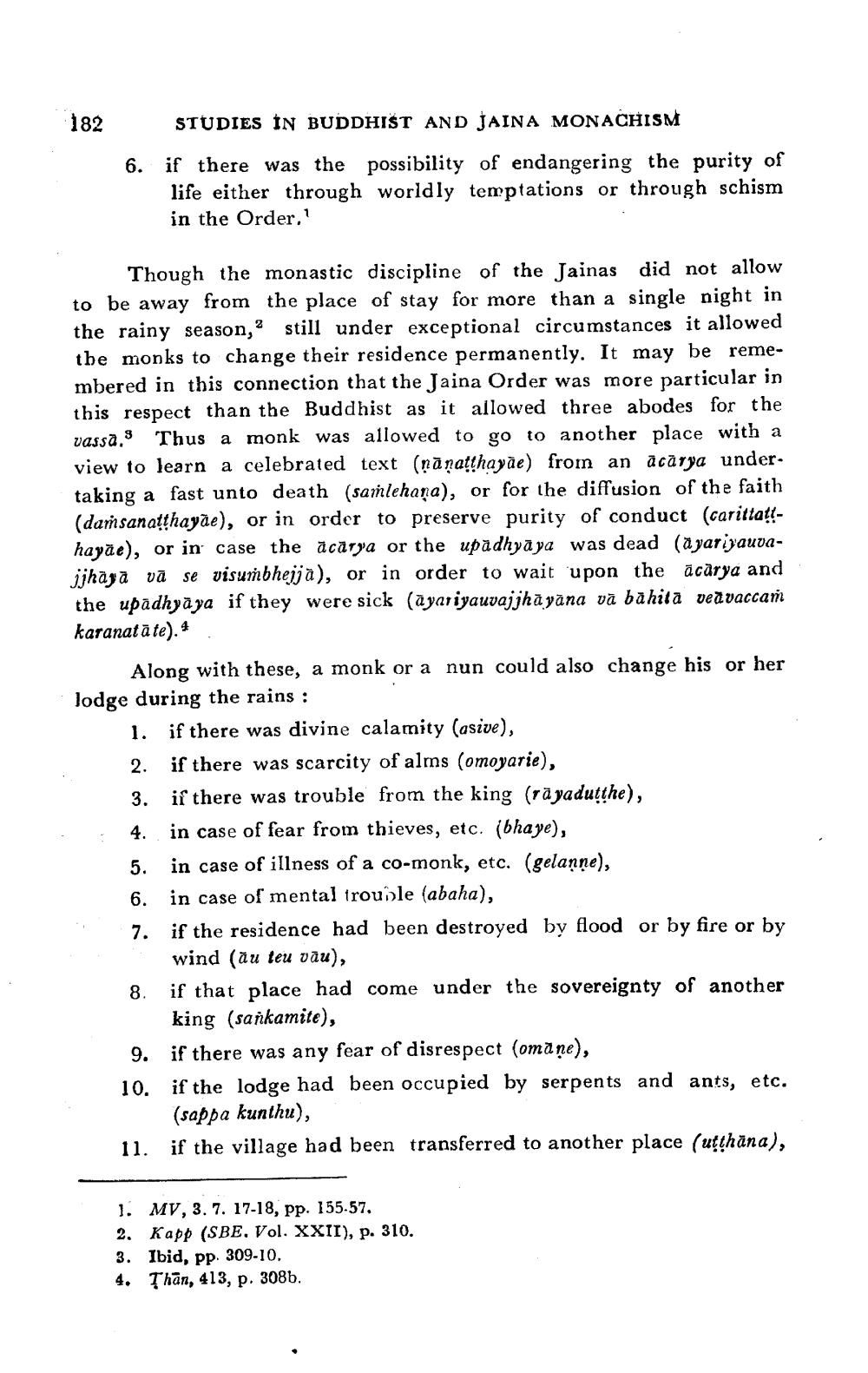________________
182
STUDIES IN BUDDHIST AND JAINA MONACHISM
6. if there was the possibility of endangering the purity of
life either through worldly temptations or through schism in the Order,
Though the monastic discipline of the Jainas did not allow to be away from the place of stay for more than a single night in the rainy season,2 still under exceptional circumstances it allowed the monks to change their residence permanently. It may be remembered in this connection that the Jaina Order was more particular in this respect than the Buddhist as it allowed three abodes for the vassa.3 Thus a monk was allowed to go to another place with a view to learn a celebrated text (nānatthayae) from an ācārya undertaking a fast unto death (samlehana), or for the diffusion of the faith (damsanatthayae), or in order to preserve purity of conduct (carittatthayāe), or in case the ācārya or the upadhyāya was dead (ayariyauvajjhayā vā se visumbhejja), or in order to wait upon the ācārya and the upādhyāya if they were sick (āyariyauvajjhāyāna vā bāhitā veavaccam karanatāte). 4.
Along with these, a monk or a nun could also change his or her lodge during the rains :
1. if there was divine calamity (asive), 2. if there was scarcity of alms (omoyarie), 3. if there was trouble from the king (rāyadutthe), 4. in case of fear from thieves, etc. (bhaye), 5. in case of illness of a co-monk, etc. (gelanne), 6. in case of mental trouble (abaha), 7. if the residence had been destroyed by flood or by fire or by
wind (au teu cau), 8. if that place had come under the sovereignty of another
king (sañkamite), 9. if there was any fear of disrespect (omā ņe), 10. if the lodge had been occupied by serpents and ants, etc.
(sappa kunthu), 11. if the village had been transferred to another place (utthāna),
1. MV, 3. 7. 17-18, pp. 155-57, 2. Kapp (SBE, Vol. XXII), p. 310. 3. Ibid, pp. 309-10, 4. Thân, 413, p. 308b.




